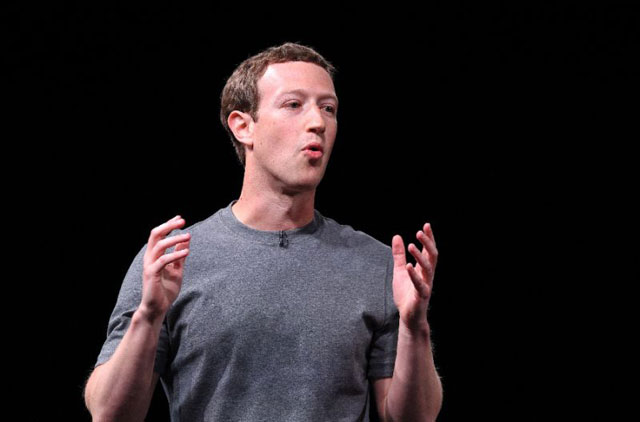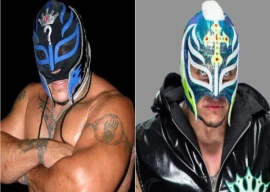
Now here is the 64-dollar question: is the targeted killing of Shias not a form of terrorism, or does the label apply only to suicide bombers who blow up police stations, army installations and foreign missions? A number of people have asked me why the army was not doing something about it. In practice, it is the president that has to issue the order for the army to act. But our president, who is cocooned in an impregnable fortress in Islamabad where even the windows have been barred, is obviously not interested. He appears reluctant to stop the foreign funding that is fueling the home grown religious fundamentalists financing the many madrassas and militant organisations that preach hatred against the Americans and Europeans and different sects of Islam. Besides, his main occupation these days is planning another five-year term for himself and the PPP. And one of the ways he is doing this, according to Chaudhry Nisar Ali Khan, leader of the opposition in the National Assembly, is by spending billions of rupees of public money on bribing journalists and buying votes. Surely, a popularly elected president in a Peoples’ government would have visited the survivors of the two terrible fires in Karachi and Lahore, especially after his popularly elected chief minister in Sindh had stopped his labour minister from inspecting local factories. Were the workers who were burnt and killed in the factory not part of the People?
I wonder how many citizens of Pakistan know that the founder of this nation was a Shia. If the country had not been wrenched out of the subcontinent in 1947, many of the schmucks who have ended up as secretaries and ministers in democratic and military set-ups would, in all likelihood in an undivided India have been junior clerks, driving tractors or trams or selling manjan in buses. Of course, not everybody who came over or was already here was a yahoo. We have had our share of good administrators, doctors, scientists and bankers. But, regrettably, the quality of the political and military leadership has been abysmal to say the least. What is most unfortunate is that in this climate of fear the silent majority remains silent. There is the odd protest, but it is never against issues that strike at the very core of our constitution. Pakistan is slowly turning into a police state with strong religious undertones — which is the very antithesis of what was preached by the founder of our nation. Regrettably, the people have lost the will to stand up and fight, because what was once considered reprehensible is now the accepted norm.
Published in The Express Tribune, September 16th, 2012.
COMMENTS (30)
Comments are moderated and generally will be posted if they are on-topic and not abusive.
For more information, please see our Comments FAQ



















@Anwer Mooraj: Dear Sir, thanks a lot for the kind comments and not taking things personally and be the bigger man. I think we all expect a lot more from the parties we have favored once. In democracy we have to choose lesser of the evils and there are no ideal parties or candidates in Pakistan. In fact I have never voted for anybody ever in a Pakistani election. For me they never were good enough. I learned after the hanging of ZAB and the flogging of political activists by the army dictators and the atrocities by mullah/military/judiciary alliance that there is a difference. PPP did not ban great poets like Josh, did not kill people like me or even today there is no political prisoner or new cases filed against political opponents. I can see the difference and favor the lesser of the evils. I know my own extended family hated ZAB, Nusrat Bhutto and Zardari as they are Shia. The coalition govt may not be able to stop the killings of Baloch or Shia but they are not the actual killers. Take your pick! Thanks again and regards, Mirza
@John B: Fully in agreement with your analysis of the nature of monarchy in India. All were efficient at extracting from the masses. I mean the primary revenue source was agriculture and today nobody even talk about taxing that sector.
I have a bit of an issue with the taxation aspect though. The British effectively outsourced the taxation to the zamindars and stipulated a specific amount from the zamindars. The zamindars were free to extract as much as they could from the farmers. The greed of zamindars along with the increasing demands of British(to finance things like railways, telegraph etc) put a severe strain on the farmers. Zamindars were replaced if they failed to collect the stipulated amount which was difficult during the famine years. It is precisely these policies that led to dispossessed zamindars and weary farmers to join the 1857 revolt. After that the British ensured that Zamindars interest were well protected and not farmers. So taxation was effectively much difficult on farmers during the British.
South India always had a certain degree of strategic autonomy from the centralized sultanate of Delhi. Right from the time of Ashoka, Maurya to Mughals, the Southern part of India was pretty much its own political being. It resulted in an eclectic mix of smaller kingdoms which kept an arms length from Delhi and fought among-st themselves as well. There were parts in south India that always remained with the Hindus or had alternating rulers from both communities. Personally to call there kingdoms as Hindu or Muslim is actually stretching the truth since it was a combination of the elite of both. Mughals had lot of Hindu ministers, wives and trade was usually in the hands of Hindu elite. Similarly Haider Ali was actually the de facto ruler for the de jure Wodeyar dynasty. The Marathas had crucial military posts headed my Muslims at certain points in history.
Also Israel's addition in the subcontinental mix is a much recent case. There were muslim rulers who indulged in extremism and those who were exceptionally tolerant. While Akbar was tolerant, Aurangzeb was extreme in the sense that he imposed Jaziya (tax on non-muslims). Aurangzeb's successor Bahadur Shah I actually repealed the jaziya and was tolerant enough but was not able to keep the Mughal empire consolidated and the decline of the Mughals had already set in by then.
@varuag: You are correct in conclusions on Tipu. However, he fought against the British for his own survival and brought french mercenaries to fight against the British. Infact, all th maharajas of India ( Hindu, Sikh, or Muslim) were either in alliance with British for their survival against their native opponents or fought against the British for their own survival. None of them are saints. They are glorified when fight against the british is written but such glorious battles were not for the people. They all taxed the framers heavily (35-50%) which in turn caused misery and poverty among the natives( hindu, Muslim, Sikh etc) while they lived in palaces oblivious of the poverty outside. The same scenario all over the world of that time. The brtish rule in India was supported by the maharajas who saw brtish administrative system was conducive for their survival, and organized militia to fight against British when their financial interests were tnreatetened. It was the maharajas who invited Queen Victoria and organized Delhi Darbar and crowned her as empress of India when they saw citizens were revolting against them and British equally. The emerging Indian National Congress preached the idea of Republic to the masses, when similar ideas in Europe were re-emerging.
Brtish saw that the overtaxation was not conducive and eased taxation and increased the credit flow to the loclals, brought large areas under cultivation and leased the lands to landless farmers and large segments of share cropers benifitted. They did it for their own benefit of course and maharajas were happy to get their share from the british until Indian National congress movement started by the enlightened wealthy Indians who went to Cambridge and Oxford and the movement was supported finacially by industrial houses and merchants who saw their interest was colluding with British interest.
However, the Islamic rule in southern India compared to the north was different and was mostly peaceful without the death and destruction. They coexistted and lived in relative peace with other faiths and the survival of the Hindu pantheons in the southern India even today is a testament. Whereas, nearly all of the Hindu pantheons of north were gone and those that survived were in the hands of Hindu or Sikh rulers who cared no one but themselves.
To understand the history of the world, follow the money, and to understand Islamic empire follow the money and religious "Infidel" ideology propagated at that time.
The formation of Israel rekindled the age old animosity in the beginning of Islam and the revival of the "infidel" ideology that Islam was shedding during ottoman empire. The Iranian revolution of 1970s brought the old feud between Shia and Sunni to the forefront in political spectrum again and PAK is the direct recipient of subcontinent history and inadvertent recipient of the world history.
" the people have lost the will to stand up and fight, because what was once considered reprehensible is now the accepted norm."
And who is willing to try to change things for the better?
"@JaMeS: "If the country had not been wrenched out of the subcontinent in 1947, many of the schmucks who have ended up as secretaries and ministers in democratic and military set-ups would, in all likelihood in an undivided India have been junior clerks, driving tractors or trams or selling manjan in buses" +++++++++++++++++++++++++++++++++++++++++++++++++++++ Pls dont target our dear and hon'ble Interior Minister thus.
The people are silent now, but once we achieve critical mass or critical desperation it will start like an avalanche and will wipe out everything in its wake and clear the way for a new life.
@mr. righty rightist: Tipu Sultan is held in high esteem generally due to his progressive views and because he was adept at statecraft. He offered grants to hindu temples and his PM and Commander in Chief were Hindu. He was also a member of the Jacobian Club and tried to cultivate relations with France, Turkey etc. but was done in by the right alliance that British forged in Fourth Anglo-Mysore War of 1799. Also the reign of Tipu and his father Haider Ali (similar to the Peshwas) ruled in the name of the Wodeyar Dynasty which the British placed back on the throne of Mysore after 1799. All rulers of that age (and some even today) were violent but their violence was not generally religion specific. If at all Tipu is revered in India it is primarily due to his struggle against the imperialist British.
On a related note, we have made a mockery of sub-continental history by picking and choosing. Our common leaders have been divided based on the allegiance 65 years ago. Such nut-picking is mental paralysis of the worst kind. That is precisely the reason people fail to understand why M.A. Jinnah is part of the 19 makers of modern India in Ramchandra Guha's book.
Why Are The People Silent
Liaquat Ali Z.A.Bhutto Benazir Bhutto Salman Taseer Shahbaz Bhatti. Countless Baloch political workers and Shia citizens.
I think the writer meant 'SILENCED' instead of SILENT.'
@Mirza: I enjoy reading your comments. They are sensible and thought provoking. However, I do feel you have missed the point of my current article. This was not an attack on the democratic system and a plea for a military take-over.Far from it. I just wanted to know whether or not the authorities considered the targeted killings of Shias a terrorist act; and if they did, what did they intend doing about it? We all know the irreparable damage done to the country by Gen. Zia-ul-Haq who represented the quintessence of obscurantism. But now that the ruling coalition includes three professed 'secular' parties, I have presumed, obviously erroneously, that the president is the representative of the whole country...and this includes the Shias.
The question posed by the learned and revered autor is "Why are the people silent? " People are silent everywhere in the world even when they see their hard earned tax dollars looted right infront of their eyes. People are silent today even when they see Bank Robbers working in all the financial centres of the world e.g. the Wall Street, in New York, the square mile in London etc. Bonny and Clyde must be turning in their graves. Is this not a fact? Yes indeed it is a fact and a sad fact. So for as long as people do not organise to enable themselves, to not only raise their voices but also empower themselves to be able to act collectively, to stop all sorts of malpractices leading to looting of their hard earned tax dollars, and to stop other injustices, methodically, lawfully and very important, peacefully, the people throughout the world are going to endure what they endure today, what they have been enduring for centuries. The ball is fully in peoples' court. Whenever the people at large, more so the intellectuals like the learned authors etc. will see the sense in organising their Union of the people, by the people, for the people, in control of the people, things will start to change. The very first pre-requisite to do so for the masses is to organise mass movement to trade their bad habits for good habits and to start practising the extinct habit called "JUSTICE". Doing justice is to regard and respect the fellow human exactly as he/she is i.e. a human. Can we bring that change? We all need to ask this question and then act accordingly.
@Ejaaz: Thanks for your comment. I agree with your point - modern communication is in itself a catalyst that could hasten change. On the other hand, I have no doubt that the scale and speed in radicalization of youth today would be impossible without the internet and mobile communications, and it is thus a double-edged sword that could also destroy the fabric of society as we know it. Further, while migration may not be necessary, there is a widening gulf between 'us' and 'them' in the muslim world - and sane voices (such as yours) who speak from the muslim side for secular thought are unfortunately very few, while those on the opposite side are legion and becoming increasingly strident. There is no dearth of rational thinkers in the West, but they are unlikely to be heard above the din of xenophobic political Islam. The change must come from within - which was the basis of my earlier comment.
If the country had not been wrenched out of the subcontinent in 1947, many of the schmucks who have ended up as secretaries and ministers in democratic and military set-ups would, in all likelihood in an undivided India have been junior clerks, driving tractors or trams or selling manjan in buses. I really loved this sentence. You are cent percent right about this. Especially all these hate mongering mullas will never dare to implement their own version of Islam
@BlackJack: 13-14 centuries are considered mideavel not renaissance. You mean the 15th.
Pls read 13th/ 14th in my earlier post as 14th/ 15th centuries (mistake made from plain stupidity - thinking 1400 to be the 14th century).
@Ejaaz: No need to become Shia but then throw him( Mr Zinnah) out of your text books, blacken his photo and declare him to be a persona non grata in Pakistan. Will that satisfy your version of Islam and persons like you. If not , condemn the sectarian killings, oppose the hate speech in mosques or elsewhere.
"If the country had not been wrenched out of the subcontinent in 1947, many of the schmucks who have ended up as secretaries and ministers in democratic and military set-ups would, in all likelihood in an undivided India have been junior clerks, driving tractors or trams or selling manjan in buses.
Now you know what kind of schmucks ruled Indian subcontinent as Mughals and Sultans.
With the exception of Akbar (who was not a muslim by the way), all other muslim rulers of the subcontinent were indeed schmucks.
Tipu Sultan, who is so revered in Pakistan and hailed in India because of pseudo-secular, anti-Hindu, pro-muslim policies of successive governments, was a schmuck. A violent persecutor.
He has committed unspeakable atrocities on Hindus and Syrian Christians of South India.
@BlackJack: Perhaps you underestimate the role that global communication is playing. The catalyst is likely the modern communication. The internet and the ubiquitous cellular phones level the field fairly quickly, and one does not need the few religious scholars. You tube which shows the blasphemous video is also showing a whole lot of other things that are beaming rationality into many young minds. Here you are communicating from thousands of miles away and so where is the necessity of scholars fleeing anywhere at present?
People are silent for the obvious reason that they want to avoid the fate of a Tasser, Bhatti or Shehzad. When these relatively powerful people tried to push the red-lines, they were killed and it psychologically pushed the liberals in a corner vacating all the space to the non-liberals. When people have to use connotations like "progressive" instead of liberal due to the smear campaign against the term itself, it is a sure sign of deep crisis. The liberals, civil society and university students have to push and fight back. I mean where are the Tariq Ali's, NFP's of today ?
"Pakistan is slowly turning into a police state with strong religious undertones "
The final settled place of political muslim government in the world was in the subcontinent and PAK which came out this civilization and owes allegiance to the founders of such civilization should know their beginning, in the words of a Shia scholar who was a contemporary to the events chronicled them in Persian. Here is an excerpt from "The anecdotes of Aurengzeb"
*In April,1669 Aurengzeb ordered the provincial governors to “destroy all the temples and schools of the infidels and to utterly put down their teachings and religious practices.” The wandering Hindu saint Uddhav Bairiki was confined in the police lock-up. The Vishwanath temple at Benares was pulled down in August 1669. The grandest shrine of Mathura, Kesav Rai's temple, built at a cost of 33 lakhs of Rupees by the Bundela Rajah Birsingh Dev, was razed to the ground in January, 1670, and a mosque built on its site. “The idols of this temple were brought to Agra and buried under the steps of Jahanara's mosque that they might be constantly trodden on” by the Muslims going in to pray. About this time the temple of Somnath on the south coast of the Kathiawar peninsula was demolished, and the offering of worship there ordered to be stopped. The smaller religious buildings that suffered havoc were beyond count. The Rajput War of 1679-80 was accompanied by the destruction of 240 temples in Mewar alone, including the famous one of Someshwar and three grand ones at Udaipur. In the loyal State of Jaipur 67 temples were demolished. On 2nd April, 1679, the jazia or poll-tax on non-Muslims was revived. The poor people who appealed to the Emperor and blocked a road abjectly crying for its remission, were trampled down by elephants at his order and dispersed. By another ordinance (March, 1695), “all Hindus except Rajputs were forbidden to carry arms or ride elephants, palkis, or Arab and Persian horses.” “With one stroke of his pen he dismissed all the Hindu clerks from office.” Custom duties were abolished on the Muslims and doubled on the Hindus.
The discontent provoked by such measures was an ominous sign of what their ultimate political consequence would be"
Needless to say that the events quoted above happened 300 years ago when the world was enslaving people and Aurengzeb behaved like any other ruthless monarch in subjugating his opponents but his religious fanaticism was not new. The first mosque built in the Indian subcontinent on the pillars of Vishnu temple stands even today.
Aurangzeb leaves behind a trail of his thoughts on the Shia sect in his letters
What was left of Aurangzeb was resurrected during the early days of PAK and became PAK history.
What is happening now is the continuation of the past except it is toward other vulnerable sects of their own kind, and others.
All that we are is the result of what we have thought.' -Buddha
All sects deserve reverence for one reason or another. By thus acting a man exalts his own sect and at the same time does service to the sects of other people.' -Ashoka edict.
Unfortunately, the new civilization that entered the subcontinent regarded the pre- existing civilization of the land as men of ignorance and did not bother to read what they had written.
Will new governance alone be sufficient ?
One can only agree with what you have said. Pakistan has been used and abused by each and every one of its leaders over the past 55 or more years. Now a precedence has been set and every new leader / party tries to out do the last.
@Najam Shakil: It is true that the Rennaissance began in the late 13th/ early 14th century; surprisingly this was a cultural and literary movement that was inadvertently set in motion by muslims - by the exodus of Greek scholars after the fall of Constantinople. It is unlikely that any scientists or (non-religious) scholars are likely to flee to the muslim world in the foreseeable future, so you will need some other catalyst for a similar Islamic renaissance. Further, what we need to remember is that the Age of Reason was nearly 2 centuries after the Renaissance - so don't expect any shift towards rationality within our lifetimes.
If the country had not been wrenched out of the subcontinent in 1947, many of the schmucks who have ended up as secretaries and ministers in democratic and military set-ups would, in all likelihood in an undivided India have been junior clerks, driving tractors or trams or selling manjan in buses
LOL !!!
"Christianity is 700 years older than Islam. When Christianity was 1400 years old it was in living in the age of religious conflict. We are following our older monotheistic cousin into the era of religious conflict. Coming soon the Thirty Years War. Something to really look forward to." That is where we learn from history.
@author::All what you said in your article is very very sad but unfortunately very true,each word of it.More unfortunate is the fact that nothing is being done to redress the situation.May be,we GOT what we had never dreamed of
nice articles.
So Jinnah was a shia, does that mean we should all become shia? The net result of what Jinnah acheived has split the Muslims into three groups in south Asia, and none of the three are doing all that great.
Christianity is 700 years older than Islam. When Christianity was 1400 years old it was in living in the age of religious conflict. We are following our older monotheistic cousin into the era of religious conflict. Coming soon the Thirty Years War. Something to really look forward to.
Excellent question.